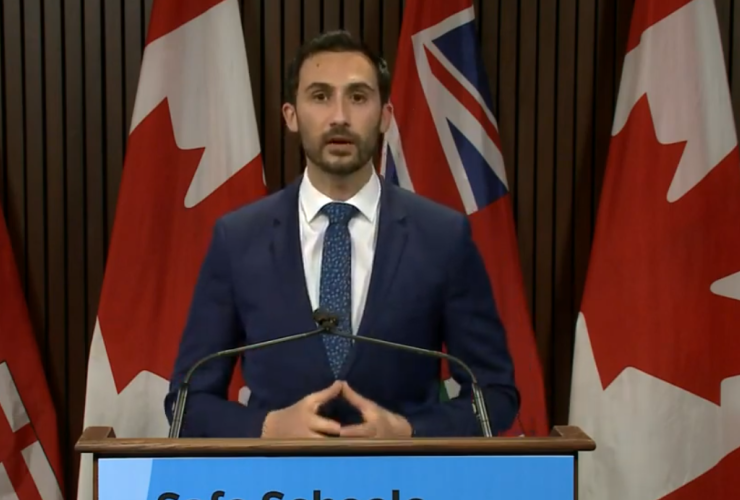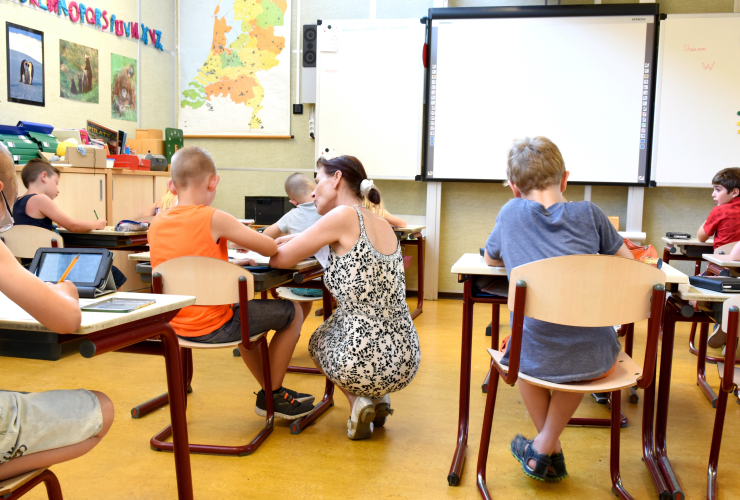Students in Ontario schools will have their March break delayed by a month, the provincial government said Thursday, in a bid to limit the risk of a spike in COVID-19 infections after time off.
Classrooms in Toronto, Peel and York have been closed since before the winter break, with all students instead learning virtually since January. (Those who choose to will return next Tuesday.)
That move was made to reduce the risk of people from COVID-19 hot spots travelling or meeting up with friends and extended family over the year-end holiday and potentially introducing more infections into the school system.
The latest move, shifting the break from the week of March 15 to the week of April 12, follows a similar thinking, as tough restrictions imposed since Christmas have helped contain a spike in COVID-19 cases.
“Postponing March break, not cancelling it, is an important way that schools can help to limit community transmission,” said Stephen Lecce, the province’s education minister.
“We recognize that congregation is a key driver of the spread of COVID-19, something we realized over the winter break, and we will not take that risk again with your child, with our staff, with Ontario families,” he said.
Critics argue it is difficult to know for sure how safe schools are, but the province’s chief medical officer of health has said 90 per cent of cases in schools were not transmitted there but, rather, brought in from the community.
New provincial modelling released soon after Lecce’s announcement suggests much more contagious strains of COVID-19 already reported in the province could create a surge of new cases in February and March without adequate public health measures.
Lecce said that while the government consulted with education stakeholders on the postponement, the action was based on medical advice and aims to keep schools open for longer.
“As far as I know, all the education groups who were consulted advised not to cancel or postpone March Break,” said Annie Kidder, the executive director of People for Education, an advocacy group.
She questioned why the government was not also telling post-secondary institutions to cancel their upcoming breaks.
Lecce said the government only has the power to enforce the shift in schedule in public schools, but strongly suggested private schools follow suit.
Andrea Horwath, the leader of the Opposition NDP, said she would prefer to see a tough lockdown imposed for a couple of weeks to try to get ahead of the faster-spreading variants that first emerged in the United Kingdom, South Africa and Brazil.

“Parents, kids, teachers and education workers are burnt out, and they desperately need a break,” she said. “Parents with kids doing at-home learning are desperate to take a breath from their superhuman juggling of work, school and other responsibilities. Teachers are exhausted. Kids need a mental health break from the screens and the stress.”
The NDP is calling on the provincial government to provide paid sick days so parents can stay home if they or their children are exhibiting symptoms, and for extensive upgrades to school ventilation, among other measures.
Morgan Sharp / Local Journalism Initiative / Canada’s National Observer






Comments